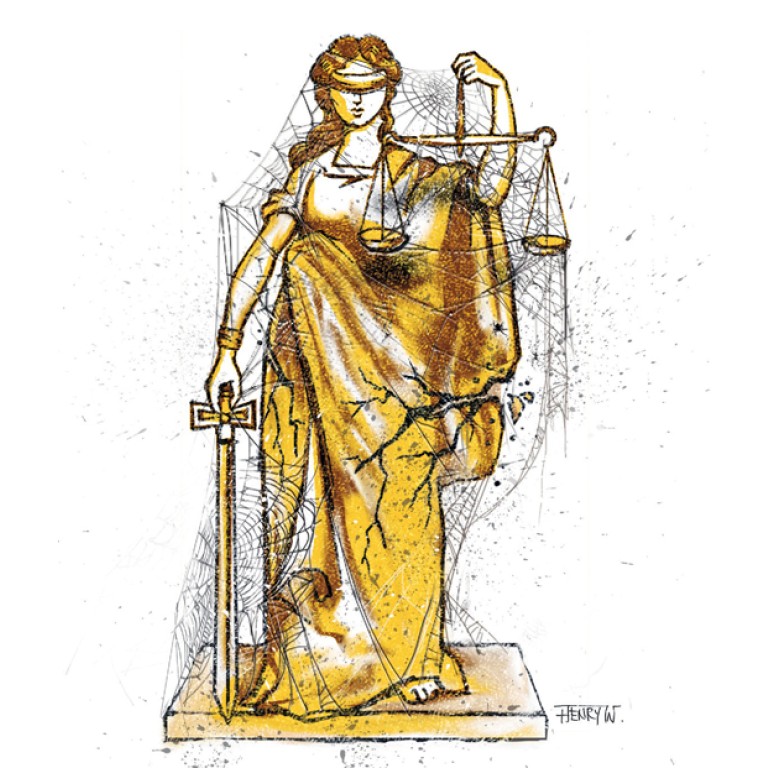
ICAC must act on Donald Tsang case or risk further damage to reputation
Grenville Cross says the ICAC needs to act openly and decisively on the drawn-out investigation into Donald Tsang, or risk further undermining its reputation and confidence in the legal system
Delay in justice," said Walter Savage Landor, "is injustice." As the Independent Commission Against Corruption, with justifiable pride, celebrates its 40th anniversary , it is timely to recall its core values of efficiency, professionalism and courage, as epitomised by its founding father, Sir Jack Cater, the first commissioner. Although the techniques of law enforcement have changed greatly since 1974, the need for the ICAC to use its powers wisely and to ensure just outcomes has not.
Criminal investigations should, if possible, be handled expeditiously, not least because suspects need to know their fate within a reasonable time. If high-profile cases are unreasonably delayed, it can also fuel public concern and undermine confidence in the legal system.
Of course, some investigations are vast, and, even with the best will in the world, it may be impossible to hurry things along. Some fraud cases, for example, involve many suspects, a mass of evidence and inquiries around the globe. Most cases, however, are not in this category, and investigators must minimise delays. Of late, however, some sensitive cases have simply disappeared into an abyss, most notably that of the former chief executive, Donald Tsang Yam-kuen.
Exactly two years ago, Tsang was referred to the ICAC for investigation over allegations that he had accepted undue advantages from tycoons. Although they were sensational, the allegations fell within a narrow compass, centring on alleged improprieties in Hong Kong, Macau and Shenzhen. It should, within months, have been possible for the ICAC to interview witnesses, examine records and decide if the case was pursuable.
Moreover, the ICAC's highly regarded director of operations, Daniel Li Ming-chak, who had been due to retire in April 2012, agreed to remain in the post for a further three months to handle the Tsang investigation. Li, presumably, wrapped things up before he departed in July 2012; otherwise, he would have stayed on longer. The ICAC, however, has remained tight-lipped ever since on the progress of the case, and the silence is now deafening.
Last August, when the retiring director of public prosecutions was urged to be more proactive and to clear his backlog of cases, he claimed that the Tsang investigation was "near completion". This, however, was not confirmed by the ICAC, and smacked instead of wishful thinking. Six months on, the case is still outstanding.
The investigation may, of course, have died, in which case the public should be told. The ICAC, with its fine traditions, must certainly not allow internal problems or concerns over a public backlash to override its duty to openly account for its conduct of cases. Nobody will understand this better than the current director of operations, Ryan Wong Sai-chiu, a principled veteran, but the fact that even he has not been able to move things along is a real concern and may suggest that other forces are at play.
The ICAC's Operations Review Committee, chaired by Michael Sze Cho-cheung, a former secretary for the civil service, oversees corruption investigations, and it is high time for the committee to show its mettle and finalise the investigation. After all, the delay in Tsang's case, together with the scandal over the alleged misuse of public money by former commissioner Timothy Tong Hin-ming, a Tsang appointee, has already damaged the ICAC's standing. Sze must now prove that his committee is not just another paper tiger.
Last month, Sze expressed concerns over possible corruption among the post-2000 generation of civil servants, who no longer have a government pension to fall back on, and he, of all people, must surely realise that the proper handling of the Tsang and Tong cases will send a strong message to the new recruits that they must behave themselves.
The current commissioner, Simon Peh Yun-lu, revealed last month that the number of corruption complaints received last year had dropped by a third, the biggest fall ever. Last year, an opinion poll also showed that the public perception of the extent to which Hong Kong is corruption-free had fallen to a 15-year low.
Everyone who values the ICAC must be concerned at this news, and, between them, Peh and Sze must restore credibility. Peh, after all, is not a mere figurehead, and the time has surely come for him, as the successor to Sir Jack Cater, to show the public worth.
When Tsang's case finally reaches the Department of Justice, the ICAC should say so, to demonstrate due process. The new DPP, Keith Yeung Kar-hung, must then prioritise it. After independent legal advice has been sought, an early decision is vital, so that the public can see that justice has, ultimately, been done, despite the unconscionable delay.
Thereafter, lessons must be learned. In particular, Peh and Sze must review their procedures to ensure that the kind of delays that have dogged Tsang's case never again arise. After all, the ICAC investigation of Tong began on May 14 last year, and, nine months on, people are already beginning to ask about progress. There must be no repetition of the inglorious Tsang saga.

